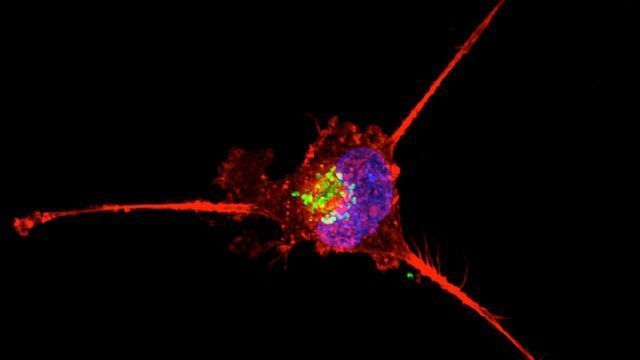Trending News
News

News
Shortening Sleep Time Can Increase the Risk of Diabetes in Women
A new study at Columbia University has found that shortening sleep by just 90 minutes for six weeks increased insulin resistance in women who are accustomed to getting adequate sleep. The effect was even more pronounced in postmenopausal women.

News
Study Identifies Link Between Mental Health and Physical Ailments
A new study has found that individuals with severe mental illness are almost twice as likely to report physical multimorbidity, emphasising the critical importance of addressing the intersection between mental and physical health.

News
Artificial Intelligence Predicts Treatment Outcome in Ovarian Cancer Patients
A model based on artificial intelligence is able to predict the therapy outcome in 80% of ovarian cancer patients. The tool, named IRON (Integrated Radiogenomics for Ovarian Neoadjuvant therapy), analyzes various patient clinical features.

News
Even Sleeping Is Better for Your Heart Than Sitting
Replacing sitting with as little as a few minutes of moderate exercise a day tangibly improves heart health, according to new research from the University of Sydney and UCL.

News
Blood Test Identifies Multiple Sclerosis Biomarkers With 90% Accuracy
A simple blood test that detects IgG antibody aggregates, a biomarker for multiple sclerosis, with 90% accuracy could enhance MS diagnostics.

News
Umbilical Cord Milking May Offer Faster Response for Preterm Infants
A treatment to move blood from the umbilical cord into an infant’s body may provide a safe option for preterm infants born after 28 weeks who need rapid support, suggests a study supported by the National Institutes of Health.

News
Measuring Skin Water Loss Predicts Anaphylaxis During Food Allergy Tests
A team of researchers developed a method that measures water loss from the skin to predict anaphylaxis during oral food challenges before it becomes clinically evident.

News
Changes Detected in Blood Up to Eight Years Before IBD Diagnosis
Inflammatory bowel diseases start a long time before symptoms occur, with changes being detected in blood up to eight years before diagnosis.

News
Elevated Biological Age Linked to Greater Dementia and Stroke Risk
People who have a higher biological age than their actual chronological age have a significantly increased risk of stroke and dementia, especially vascular dementia.

News
Blood Test Reveals MS Progression Years in Advance
A blood test that detects elevated NfL, a biomarker of nerve damage, could be used to predict multiple sclerosis progression one to two years before worsening symptoms.
Advertisement




